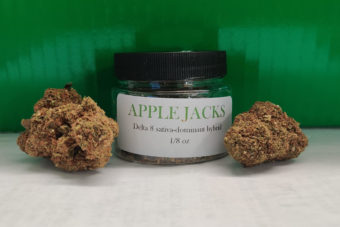
 by b-organics-admin
by b-organics-admin- Uncategorized
- August 19, 2020
- 1,182
- 0
Chronic Fatigue Syndrome is a debilitating condition.
Last month I cleaned the outside of the house and ended up feeling pretty awful. I felt kinda fluish and thought it might be gluten withdrawal. Last week I went for an hour long walk and the same thing happened, only worse. I was down for four days after.
How I learned I was suffering from this debilitating disease was the fact that every time I did anything remotely strenuous, even just taking a shower and doing daily chores, I would become extremely fatigued to the point of having to lie down, sometimes for days or weeks.
Sleep didn’t help at all. A simple morning walk longer than 30 minutes could cause me to be bedridden for days, whereas I used to bike 3-5 miles a day until 2018. Since I wasn’t sleeping, I thought exercise would help, but it only made things worse. But not exercising meant I wasn’t expending enough energy and wouldn’t be able to sleep. It was a catch 22 situation. Life was hell on earth.
Even reading became exhausting. Sometimes words on the page made no sense. Cognitive decline kicked in. I wondered what could be going on, and what I found was pretty shocking.
It’s called Chronic Fatigue Syndrome.

“Chronic fatigue syndrome (CFS) is a disorder characterized by extreme fatigue or tiredness that doesn’t go away with rest and can’t be explained by an underlying medical condition.
CFS can also be referred to as myalgic encephalomyelitis (ME) or systemic exertion intolerance disease (SEID).
The causes of CFS aren’t fully understood yet. Some theories include viral infection, psychological stress, or a combination of factors.
Because no single cause has been identified, and because many other conditions produce similar symptoms, CFS can be difficult to diagnose.
There are no tests for CFS. Your doctor will have to rule out other causes for your fatigue when determining a diagnosis.
While CFS was previously a controversial diagnosis, it’s now widely accepted as a medical condition.
CFS can affect anyone, though it’s most common among women in their 40s and 50s. There’s currently no cure, but treatment can relieve symptoms,” according to CDC.
It is thought that viruses, a weakened immune system, stress and hormonal imbalances may play a part in Chronic Fatigue Syndrome.

Post-exertional Malaise (PEM)
“Post-exertional malaise (PEM) is the worsening of symptoms after even minor physical, mental or emotional exertion. For some patients, sensory overload (light and sound) can induce PEM. The symptoms typically get worse 12 to 48 hours after the activity or exposure and can last for days or even weeks.
PEM can be addressed by activity management, also called pacing. The goal of pacing is to learn to balance rest and activity to avoid PEM flare-ups, which can be caused by exertion that patients with ME/CFS cannot tolerate. To do this, patients need to find their individual limits for mental and physical activity. Then they need to plan activity and rest to stay within these limits. Some patients and doctors refer to staying within these limits as staying within the “energy envelope.”
Patients who have learned to listen to their bodies might be able to increase their activity level. However, ME/CFS is unpredictable. PEM symptoms may not start right after exercise, making it important for each treatment plan to be tailored for each case. Exercise is not a cure for ME/CFS.
Any activity or exercise plan for people with ME/CFS needs to be carefully designed with input from each patient. While vigorous aerobic exercise can be beneficial for many chronic illnesses, patients with ME/CFS do not tolerate such exercise routines. Standard exercise recommendations for healthy people can be harmful for patients with ME/CFS. However, it is important that patients with ME/CFS undertake activities that they can tolerate, as described above,” according to CDC.

NATURAL SOLUTIONS FOR CFS
Dr. Amy Meyers M.D. states that, “80% of your immune system is located in your gut, therefore healing your gut is essential to restoring your immune system and your health. It’s all about removing the bad, replacing the good, reinoculating with healthy bacteria, and repairing your damaged gut.
She recommends regularly drinking bone broth.
“The nutrients and collagen contained in bone broth give a boost of energy and help repair damaged intestinal cells. Many of my patients drink it in place of their morning coffee, which is a gut irritant.”
And of course, there are a few solutions I’ve found over the past few years that work well when you really need to get things done!











